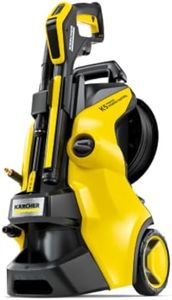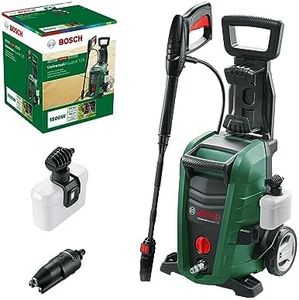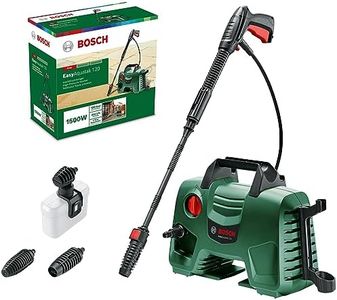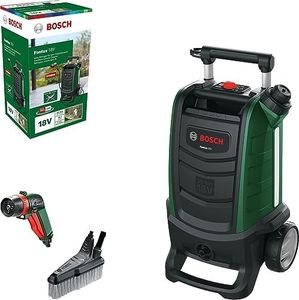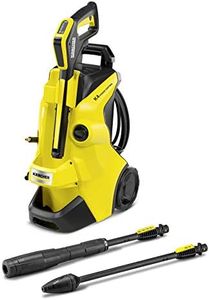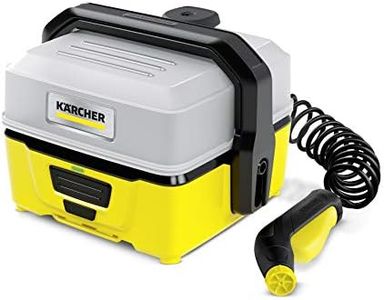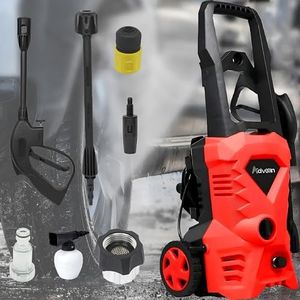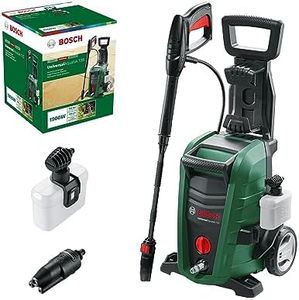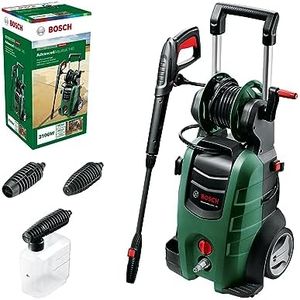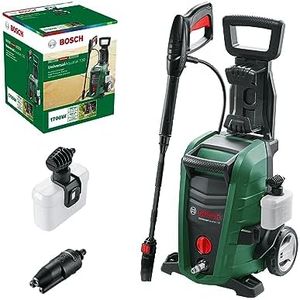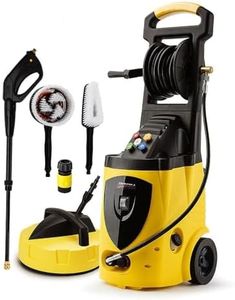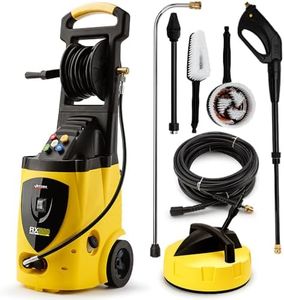We Use CookiesWe use cookies to enhance the security, performance,
functionality and for analytical and promotional activities. By continuing to browse this site you
are agreeing to our privacy policy
10 Best Car Pressure Washers
From leading brands and best sellers available on the web.By clicking on a link to a third party's website, log data is shared with that third party.
Buying Guide for the Best Car Pressure Washers
When choosing a car pressure washer, the goal is to find a machine that strikes the right balance between cleaning power and user-friendliness. Pressure washers are essential for efficiently washing your car without damaging the paint. It's important to consider how often you plan to use it, the typical dirt conditions your vehicle faces, and how easy it is for you to handle and store the unit. Picking the right mix of features ensures you have a safe, effective, and enjoyable washing experience.Pressure (PSI)Pressure, measured in PSI (pounds per square inch), determines the force with which water comes out of the washer. Higher PSI means more cleaning power, but too much can damage your car’s paint or sensitive areas. For car washing, models with a PSI in the 1200–1900 range are gentle yet effective, ideal for regular cleaning without risk. Washers above 2000 PSI are typically meant for tougher jobs like patios or driveways, not recommended for cars. If you primarily want to wash vehicles and occasional outdoor furniture, stick to low-to-mid pressure options for safe and reliable results.
Water Flow Rate (GPM or LPM)Water flow rate tells you how much water is delivered per minute, usually in gallons (GPM) or liters (LPM). This spec affects how quickly you can rinse away dirt. Lower rates (under 1.4 GPM or 6 LPM) are more water-efficient and suitable for most car washing tasks, but may take a bit longer to clean larger vehicles. Higher flow rates (over 1.8 GPM or 8 LPM) clean faster but can use more water. Choose based on whether you prefer water savings and gentle cleaning or want the job done very quickly, especially if you own SUVs or trucks.
Power Source (Electric vs Gas)Pressure washers come in either electric or gas-powered models. Electric washers are quieter, lighter, and easier to maintain, making them ideal for most home car washing tasks. Gas-powered ones offer more power but are heavier, louder, and need more upkeep, typically overkill for washing cars and better suited for heavy-duty chores. If your main use is around the car or home and you want simplicity, an electric model is usually the best choice. Select gas only if you’ll tackle larger areas or work away from electrical outlets.
Nozzle OptionsNozzles control the shape and force of the water spray. Adjustable or multiple nozzle tips let you switch between wide, gentle sprays for rinsing and narrower, higher-pressure streams for tough spots. Wide nozzles (25–40 degrees) are perfect for most of the car, while narrow nozzles (0–15 degrees) should be avoided to prevent paint damage. Some washers come with all-in-one variable nozzles for convenience. For car washing, look for machines that offer at least a wide-angle option and if possible a selection for soaping and rinsing, so you can match the spray to every task.
Portability and StorageThe ease with which you can move and store your pressure washer determines how convenient it is for regular use. Lightweight models with wheels and compact designs are easier to handle, especially if you need to move the washer around your driveway or store it in a tight space. Larger washers with heavy frames may offer more stability but are harder to move and store. If you want something you can easily use on weekends and tuck away without hassle, prioritize lighter units with built-in handles and manageable hose storage.
Detergent FeaturesMany pressure washers include built-in detergent tanks or foam sprayers to help apply soap easily and evenly. This is useful for softening dirt or giving your car a thorough clean without manual scrubbing. Some models allow you to adjust the mix of soap and water, which helps for both spot cleaning and all-over washes. If you want to make car washing less labor-intensive and more effective, pick a washer that supports detergent application, especially with an easy-to-fill tank and good mixing control.
